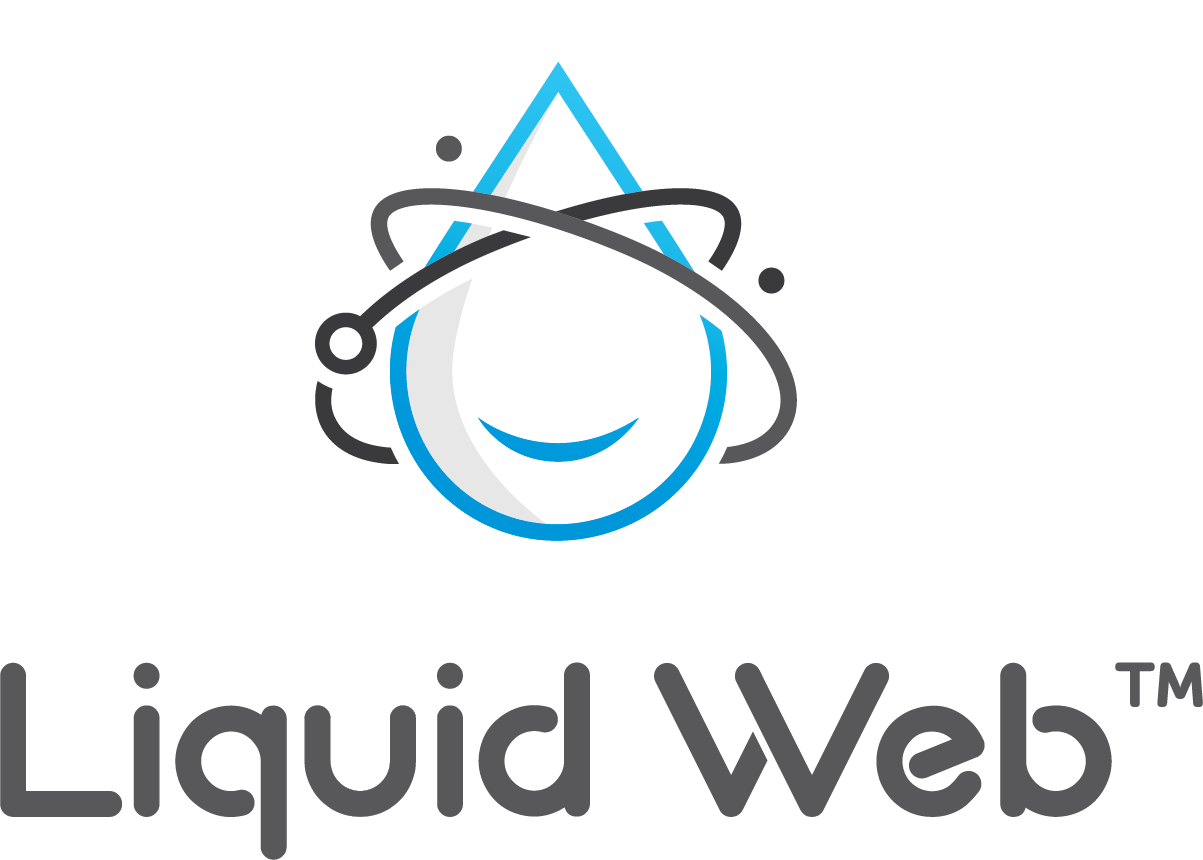10+ Best AWS Hosting Alternatives for 2025
Estimating cloud hosting costs, especially with the unpredictable pay-as-you-go model, can be a challenging task for project managers. To address this challenge, many turn to cost estimator tools, and one standout is the AWS Pricing Calculator from Amazon. However, for those seeking alternatives to AWS hosting, various factors come into play, including cost, performance, and ease of use.
How Does the Pay-As-You-Go Model Work?
AWS presents a pay-as-you-go pricing model for the majority of its cloud services. This means you are billed solely for the specific services you utilize and only for the duration of their use. Unlike long-term contracts or licensing agreements, AWS pricing is straightforward and comparable to utility billing systems for water and electricity. Similar to paying for these utilities, you only incur charges for the services you actively consume. Importantly, once you cease using these services, no extra costs or termination fees are applied.Is AWS the Only Company That Offers the Pay-As-You-Go Model?
Shortly said, no. While AWS is widely known for popularizing the Pay-As-You-Go model in cloud computing, it's not the only company that offers this pricing model. Several other cloud service providers have adopted similar pay-as-you-go or consumption-based pricing models. Some notable examples include:- Microsoft Azure. Azure, Microsoft's cloud platform, also provides a pay-as-you-go pricing model, allowing users to pay for the resources they consume without the need for upfront commitments.
- Google Cloud Platform (GCP). GCP offers a pay-as-you-go pricing structure, where users are billed based on their actual usage of resources. Google Cloud's pricing is designed to be transparent and flexible.
- IBM Cloud. IBM Cloud provides a flexible, consumption-based pricing model similar to the pay-as-you-go model. Users can scale their resources up or down based on their needs, and costs are incurred based on actual resource consumption.
- Oracle Cloud Infrastructure (OCI). OCI offers a pay-as-you-go model that allows users to pay for the specific resources and services they use. This provides flexibility and cost efficiency for varying workloads.
Why Go for Cheaper AWS Alternatives?
Considering cheaper AWS alternatives can be motivated by several factors:- Cost efficiency. Cheaper alternatives may offer comparable services at a fraction of the cost, making them more budget-friendly, especially for startups and small businesses looking to optimize expenses.
- Budget constraints. Organizations with limited budgets may find it more feasible to explore alternatives that provide cost-effective solutions without compromising essential functionalities.
- Scaling opportunities. Some alternatives may offer more flexible scaling options, allowing businesses to align their expenses with their growth trajectory more effectively.
- Tailored requirements. Businesses with specific needs that can be met by alternatives without requiring the extensive and potentially more expensive services offered by AWS may find it more advantageous to opt for tailored solutions.
- Diverse service offerings: Cheaper alternatives often cater to a wide range of service needs, allowing users to select only the services they require without paying for a comprehensive suite that might go unused.
- Competitive landscape. The competitive nature of the cloud services market has led to the emergence of alternatives that strive to deliver quality services at competitive prices, encouraging users to explore and compare offerings.
- Risk mitigation. Diversifying cloud service providers or opting for cheaper alternatives can be a risk mitigation strategy, reducing dependency on a single provider and potentially minimizing financial risks associated with service outages or unexpected cost increases.
| Hosting Provider | Reviews | Overall Rating | Starts from |
|---|---|---|---|
1  Kamatera Kamatera
|
274 |

|
$4.00 / mo. 30 Days free |
2  Hostinger Hostinger
|
47.8k+ |

|
$1.95 / mo. 75% Off |
3  InterServer InterServer
|
2k+ |

|
$2.50 / mo. NOW 65% off |
4  A2 Hosting A2 Hosting
|
3.4k+ |

|
$1.95 / mo. NOW -76% |
5  Hostwinds Hostwinds
|
1.5k+ |

|
$4.99 / mo. |
6  Cloudways Cloudways
|
2.9k+ |

|
$11.00 / mo. |
7  Liquid Web Inc. Liquid Web Inc.
|
1.6k+ |

|
$5.00 / mo. up to -55% |
8  Hostgator Hostgator
|
12.4k+ |

|
$1.67 / mo. -73% NOW |
9  AccuWebHosting AccuWebHosting
|
242 |

|
$1.99 / mo. FX VPS -33.40% |
10  IONOS | ionos.com IONOS | ionos.com
|
27.4k+ |

|
$1.00 / mo. |
11  Digital Ocean Digital Ocean
|
1.6k+ |

|
$5.00 / mo. |
12  Bluehost Bluehost
|
20.3k+ |

|
$1.99 / mo. -70% NOW |
13  Linode Linode
|
206 |

|
$5.00 / mo. |
30 Days free
1. Kamatera

3.8

Number of Reviews
 274
274
 274
274
Avg. Review Rating
 4.2
Positive
4.2
Positive
 4.2
Positive
4.2
Positive
Customer Support
 Positive
Positive
 Positive
Positive
Starts from
$4.00 / mo.
Server Locations










75% Off
2. Hostinger

4.6

Number of Reviews
 47.8k+
47.8k+
 47.8k+
47.8k+
Avg. Review Rating
 4.6
Positive
4.6
Positive
 4.6
Positive
4.6
Positive
Customer Support
 Positive
Positive
 Positive
Positive
Starts from
$1.95 / mo.
Server Locations









NOW 65% off
3. InterServer

4.5

Number of Reviews
 2k+
2k+
 2k+
2k+
Avg. Review Rating
 4.4
Positive
4.4
Positive
 4.4
Positive
4.4
Positive
Customer Support
 Positive
Positive
 Positive
Positive
Starts from
$2.50 / mo.
Server Locations










NOW -76%
4. A2 Hosting

4.6

Number of Reviews
 3.4k+
3.4k+
 3.4k+
3.4k+
Avg. Review Rating
 4.5
Positive
4.5
Positive
 4.5
Positive
4.5
Positive
Customer Support
 Positive
Positive
 Positive
Positive
Starts from
$1.95 / mo.
Server Locations










5. Hostwinds

4.6

Number of Reviews
 1.5k+
1.5k+
 1.5k+
1.5k+
Avg. Review Rating
 4.4
Positive
4.4
Positive
 4.4
Positive
4.4
Positive
Customer Support
 Positive
Positive
 Positive
Positive
Starts from
$4.99 / mo.
Server Locations



6. Cloudways

4.4

Number of Reviews
 2.9k+
2.9k+
 2.9k+
2.9k+
Avg. Review Rating
 4.5
Positive
4.5
Positive
 4.5
Positive
4.5
Positive
Customer Support
 Positive
Positive
 Positive
Positive
Starts from
$11.00 / mo.
Server Locations










up to -55%
7. Liquid Web Inc.

4.4

Number of Reviews
 1.6k+
1.6k+
 1.6k+
1.6k+
Avg. Review Rating
 4.5
Positive
4.5
Positive
 4.5
Positive
4.5
Positive
Customer Support
 Positive
Positive
 Positive
Positive
Starts from
$5.00 / mo.
Server Locations


-73% NOW
8. Hostgator

4.3

Number of Reviews
 12.4k+
12.4k+
 12.4k+
12.4k+
Avg. Review Rating
 4.1
Positive
4.1
Positive
 4.1
Positive
4.1
Positive
Customer Support
 Neutral
Neutral
 Neutral
Neutral
Starts from
$1.67 / mo.
Server Locations










FX VPS -33.40%
9. AccuWebHosting

3.9

Number of Reviews
 242
242
 242
242
Avg. Review Rating
 4.4
Positive
4.4
Positive
 4.4
Positive
4.4
Positive
Customer Support
 Positive
Positive
 Positive
Positive
Starts from
$1.99 / mo.
Server Locations










10. IONOS | ionos.com

4.2

Number of Reviews
 27.4k+
27.4k+
 27.4k+
27.4k+
Avg. Review Rating
 4.2
Positive
4.2
Positive
 4.2
Positive
4.2
Positive
Customer Support
 Neutral
Neutral
 Neutral
Neutral
Starts from
$1.00 / mo.
Server Locations










11. Digital Ocean

4.1

Number of Reviews
 1.6k+
1.6k+
 1.6k+
1.6k+
Avg. Review Rating
 3.6
Neutral
3.6
Neutral
 3.6
Neutral
3.6
Neutral
Customer Support
 Neutral
Neutral
 Neutral
Neutral
Starts from
$5.00 / mo.
Server Locations






-70% NOW
12. Bluehost

4.1

Number of Reviews
 20.3k+
20.3k+
 20.3k+
20.3k+
Avg. Review Rating
 4.0
Positive
4.0
Positive
 4.0
Positive
4.0
Positive
Customer Support
 Neutral
Neutral
 Neutral
Neutral
Starts from
$1.99 / mo.
Server Locations



13. Linode

3.3

Number of Reviews
 206
206
 206
206
Avg. Review Rating
 3.2
Neutral
3.2
Neutral
 3.2
Neutral
3.2
Neutral
Customer Support
 Neutral
Neutral
 Neutral
Neutral
Starts from
$5.00 / mo.
Server Locations








HowToHosting.Guide Selected Kamatera Reviews
 Trustpilot User
from United Kingdom
Trustpilot User
from United Kingdom
Published on: 22/05/2024
"I was seeking a VPS that would allow me to set up and run my own VM image as an instance. The option on the Kamatera website did not work as intended, so I continued my search elsewhere. Shortly after, I received an email from the support team offering their assistance. Shahar successfully uploaded the VM image and deployed the server. There have been no hiccups since then. This is a degree of service that merits recognition. Kamatera is currently hosting two of my instances. I can only recommend."
 Trustpilot User
from Serbia
Trustpilot User
from Serbia
Published on: 04/04/2024
"Kamatera.com stands out in the realm of VPS hosting providers, offering exceptionally fast servers that cater to a wide range of needs, from small projects to demanding enterprise solutions.
Their state-of-the-art infrastructure ensures that applications run smoothly and swiftly, providing an optimal user experience that sets them apart from competitors.
One of the most remarkable aspects of Kamatera is the ease of configuration.
Whether you're a novice or an experienced developer, setting up your server is a breeze, thanks to their user-friendly control panel and the availability of pre-configured templates.
This streamlined process eliminates the typical hassle associated with server deployment, allowing you to focus on what matters most - your project.
Moreover, Kamatera's reliability is unmatched. Users enjoy a seamless hosting experience with virtually no problems.
The combination of robust hardware, advanced networking, and proactive monitoring means that issues are rare"
 Trustpilot User
from United States
Trustpilot User
from United States
Published on: 24/01/2024
"I have used all the major providers of Cloud based servers. Kamatera is by far the best. The dashboard allows you to create a server in a minute or so and it is clear exactly what your charges are going to be from the start. The actual equipment they use at there data centers is top quality. Need to upgrade, downgrade or backup a server? It's so simple. There are no hidden fees. They provide a dedicated account manager so you can get answers quickly. The technical support is the best I have ever experienced. I have never had a server go down. There pricing is very competitive."
Factors to Consider When Choosing AWS Hosting Alternatives
Project managers need reliable cost estimator tools to project monthly bills accurately. Consider alternative hosting providers that offer intuitive and accurate tools for estimating costs, similar to the AWS Pricing Calculator.Alternative Cost Estimation Tools
- Google Cloud Pricing Calculator. Google Cloud provides a comprehensive pricing calculator for estimating costs across services such as compute, storage, networking, and machine learning.
- Microsoft Azure Pricing Calculator. Azure, Microsoft's cloud platform, features a pricing calculator covering a broad spectrum of services, including virtual machines, storage, databases, and AI.
- IBM Cloud Pricing Calculator. IBM Cloud offers a calculator to estimate costs for cloud infrastructure needs, encompassing services like virtual servers, storage, databases, and AI.
- Alibaba Cloud Pricing Calculator. Alibaba Cloud, a major Chinese cloud provider, provides a calculator for estimating costs related to their cloud services, including ECS instances, databases, and storage.
- DigitalOcean Pricing Calculator. DigitalOcean's calculator is known for its simplicity, allowing users to estimate costs for Droplets (virtual machines), databases, and storage.
- Kamatera Pricing Calculator. Kamatera, mentioned in the provided text, offers a pricing calculator for estimating costs related to their cloud infrastructure services, covering aspects like virtual servers, storage, and additional resources.
- Cloudways Pricing Calculator. Cloudways, a managed cloud hosting provider, features a pricing calculator for estimating costs based on the selected cloud provider (AWS, Google Cloud, Digital Ocean, Linode, or Vultr), server size, and other parameters.
- Heroku Pricing Calculator. Heroku, a platform-as-a-service (PaaS) provider, offers a simplified pricing model. Users can estimate costs based on the number of dynos (containers) and additional add-ons required for their applications.
Development Tools
When exploring alternatives to AWS hosting, evaluate hosting solutions that offer a comprehensive suite of services essential for development. Look for platforms that not only cater to your basic hosting needs but also provide a diverse range of services crucial for seamless development processes. These services include:- Databases: Ensuring efficient data management.
- Machine Learning Processing: For advanced analytics and predictive modeling.
- Storage Options: Accommodating your data storage requirements.
- Compute Resources: Facilitating powerful processing capabilities.
- Data Transfer Rates: Ensuring swift and reliable data exchange.
- CDN Integration: Optimizing content delivery for enhanced user experiences.
Affordability for Small Businesses
Small business owners often operate on tight budgets. Look for alternatives that offer affordable rates, especially those catering to web development costs. . Open-source solutions, like the LAMP stack, are popular for their reliability and cost-effectiveness. The LAMP stack, an acronym for Linux, Apache, MySQL, and PHP/Python/Perl, represents a diverse and cost-effective foundation for web development. These are its advantages:- Cost-Effectiveness. All components of the LAMP stack are open-source, meaning they come with no licensing fees. Small businesses can harness powerful technologies without a significant financial outlay.
- Community Support. The LAMP stack benefits from a vibrant and active community of developers. This community support ensures regular updates, security patches, and a wealth of online resources for troubleshooting and optimizing performance.
- Flexibility. The LAMP stack is versatile, allowing businesses to adapt and scale their web applications based on evolving needs. Whether it's a simple website or a more complex web service, the stack accommodates diverse requirements.
- Reliability. Linux, Apache, MySQL, and PHP/Python/Perl are time-tested components known for their reliability and stability. This reliability is crucial for small businesses aiming to establish a solid online presence without the concern of frequent disruptions.
Further Technical Considerations
You should also consider the following technical specifications for each provider:- Performance and Page Load Times. As websites grow in popularity, performance becomes critical. Hosting providers with cloud VPS and VM plans equipped with GUI administration and version control, ensuring smooth operations and minimal page load times, are essential.
- Compliance and Data Privacy. For businesses handling sensitive data, compliance with international laws is crucial. Seek hosting alternatives with datacenters that comply with standards like HIPAA, PCI, and GDPR, ensuring data privacy and legal compliance.
- Variety of Hosting Plans. Explore alternatives that offer a variety of hosting plans, including shared, VPS, cloud, and dedicated server options. This allows users to choose a plan that aligns with their specific project requirements and budget constraints.
- Managed Cloud Infrastructure. Opt for providers that offer managed cloud infrastructure, streamlining server management tasks. This is particularly beneficial for businesses looking to focus on app development rather than spending time on systems administration.
- Scalability and Customization. Choose hosting alternatives that provide scalability and customization options. This ensures that the hosting solution can adapt to the changing needs of a growing project or business.
- Uptime Guarantee. Uptime is critical for any online presence. Look for hosting providers that offer a high uptime guarantee, ensuring minimal disruptions to website availability.
- Free Trial Options: Consider hosting alternatives that provide free trial options. This allows users to test the platform's features, performance, and ease of use before committing to a long-term plan.
